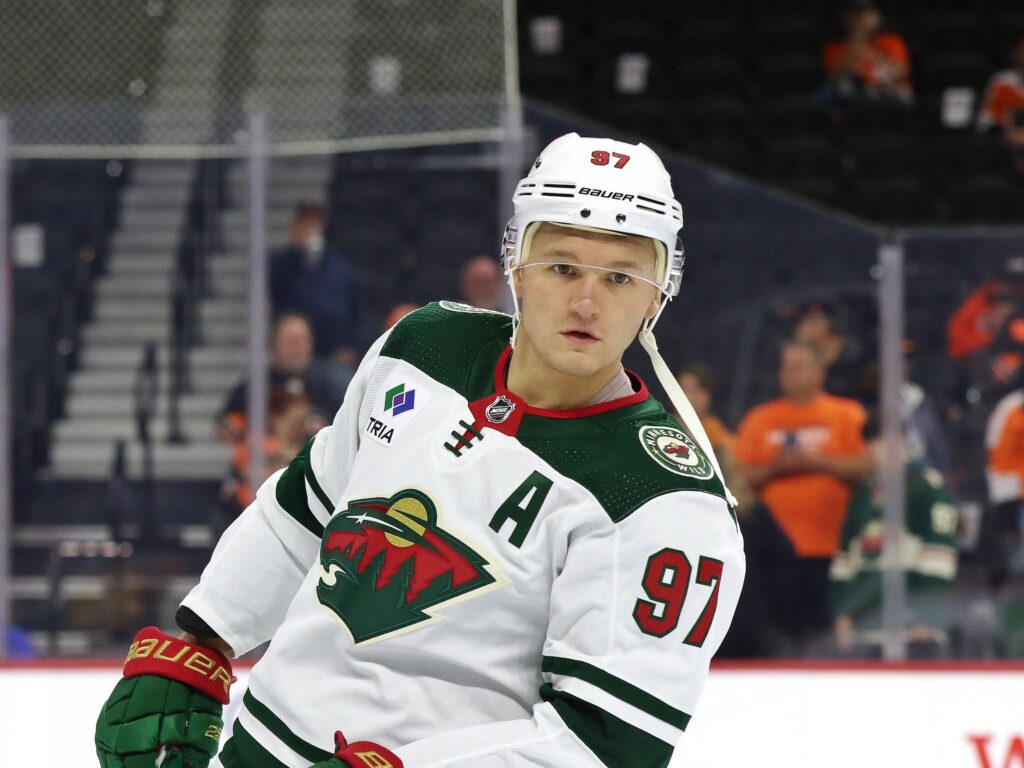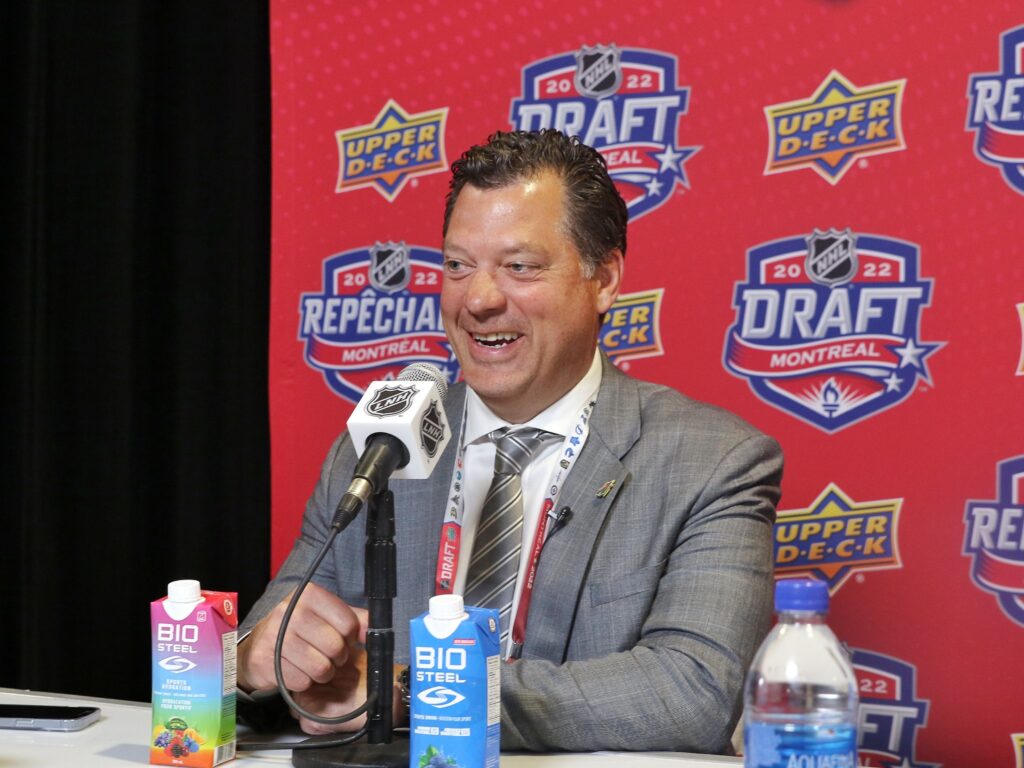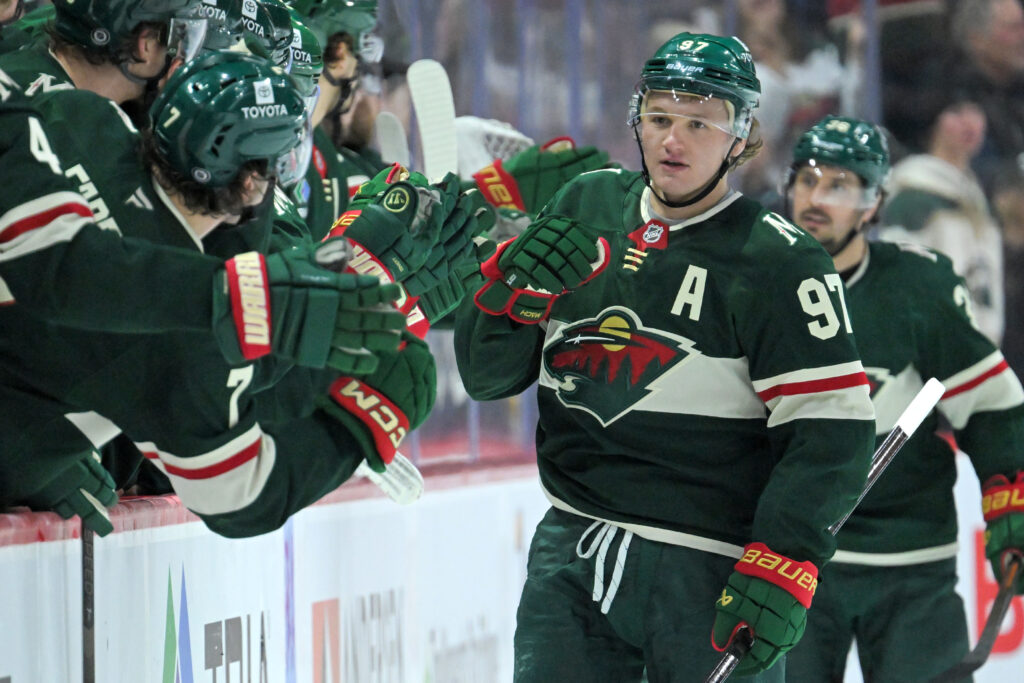The puck hasn’t even dropped on the 2025-26 season, and already the biggest story in the NHL is a contract that hasn’t been signed. Reports surfaced Wednesday that Minnesota Wild superstar Kirill Kaprizov has turned down what would have been the richest contract in the history of the sport: a colossal eight-year, $128 million extension. The proposed $16 million average annual value (AAV) would have shattered existing records, resetting the market for elite talent across the league. Yet, the man they call “Dolla Bill Kirill” apparently said “no thanks.”
This isn’t just a negotiation; it’s a high-stakes poker game with the future of a franchise hanging in the balance. While the Wild’s brass scrambles to keep their generational talent, Kaprizov and his agent are playing a calculated game of leverage, ambition, and financial foresight. But as with any major negotiation, the truth often lies somewhere between the headlines and the backroom whispers.
Also on the EDGE – The Razor’s Edge: Inside Connor McDavid’s Calculated Contract Standoff
A “Fairytale” Offer or Just Media Games?
The initial report from insider Frank Seravalli sent shockwaves through the hockey world. A $128 million offer is not just a statement; it’s a declaration. It’s a figure so immense that it borders on the surreal. This is the kind of offer a player is supposed to dream of, the kind that secures a family’s future for generations. For Kaprizov to reportedly walk away from it suggests a disconnect of seismic proportions.

However, the ink was barely dry on Seravalli’s report before conflicting information emerged. Sources close to Kaprizov’s camp vehemently denied that a specific monetary value was ever presented, let alone rejected. One source went so far as to call the story a “completely fabricated… fairytale,” suggesting it was a strategic leak. This is the classic fog of war in contract negotiations. Is it a genuine impasse, or are we witnessing a masterclass in media manipulation designed to paint one side as unreasonable? The reality is likely a combination of both. The Wild have made it clear they’re willing to go to unprecedented lengths, and Kaprizov’s camp is using that knowledge to control the narrative and the terms of engagement.
Why Say No to a King’s Ransom?
Assuming there’s fire behind the smoke and Kaprizov is indeed hesitant to sign a long-term deal, the motivations are more complex than simple greed. At 28 years old and entering the final year of his current $9 million AAV contract, Kaprizov is at the absolute peak of his earning power. His decision-making process is likely guided by two primary factors: the exploding salary cap and the burning desire to win.
The NHL’s salary cap is projected to rise significantly in the coming years. A player’s value isn’t just a number; it’s a percentage of that cap. Locking in at $16 million now, while historic, might look like a relative bargain in 2029. Why commit for eight years when you can sign a shorter three- to five-year deal—a strategy Auston Matthews perfected in Toronto—and re-enter the market in your early 30s for an even bigger piece of a much larger pie? It’s a calculated gamble on his own health and performance, but one that could yield an even greater financial windfall.
Then there’s the matter of winning. The Minnesota Wild have not won a playoff series since 2015, and Kaprizov has never experienced the second round of the Stanley Cup Playoffs. For a player of his caliber, individual accolades and a max contract are great, but the ultimate goal is a championship ring. He may be looking at the Wild’s roster and wondering if they are truly a “bonafide contender” or if his prime years would be better spent elsewhere. This isn’t just about money; it’s about legacy.
The Wild’s Desperate Gamble
From the Wild’s perspective, this is a franchise-defining moment. Owner Craig Leipold and GM Bill Guerin have done everything but shout from the rooftops that Kaprizov is their guy and that money will not be a “stumbling block.” Leipold has publicly stated he would offer “the biggest [deal] the NHL has ever seen,” effectively handing all the leverage to Kaprizov’s agent.

Keeping Kaprizov, the “bona fide steal” of the 2015 Draft, is paramount. He is the engine of their offense and the face of the franchise. Losing him would be an unforgivable failure. The Wild are also the only team that can offer him the security of an eight-year term, a key advantage they must press.
However, meeting Kaprizov’s demands carries its own immense risk. A $16 million AAV would account for over 15% of the projected 2026-27 salary cap. That’s a higher percentage than the deals signed by Nathan MacKinnon, Auston Matthews, and Leon Draisaitl in their first years. Such a contract could cripple the team’s ability to build a deep, competitive roster around him, potentially leading to the dreaded “cap hell.” Critics will also point to Kaprizov’s injury history as a significant red flag when committing that much term and money. The Wild are betting the entire future of their franchise on one player’s health and loyalty.
The Endgame: Compromise, Chaos, or Departure?
So where does this leave us? The most logical outcome remains a compromise. A shorter-term deal, perhaps in the four- or five-year range, seems to be the sweet spot. It would give Kaprizov a massive raise and the flexibility to re-evaluate his options in his early 30s, while providing the Wild with a few more years of their superstar’s prime.
But if a deal can’t be reached, the unthinkable becomes possible. Kaprizov could play out the season and head towards unrestricted free agency in the summer of 2026. Teams with cap space and a need for a game-breaking talent, like the Detroit Red Wings, would undoubtedly line up to make their pitch. The alternative, a trade, would signal a full-scale rebuild for Minnesota, though the return for a player of Kaprizov’s stature would have to be astronomical.
This negotiation is more than just a business transaction. It’s a clash of modern athlete empowerment against a franchise’s desperate need for a hero. Kaprizov holds all the cards, and his next move will not only determine his own future but will also set a new standard for player power in the NHL and dictate the course of the Wild for the next decade.
Created with the aid of Gemini AI
